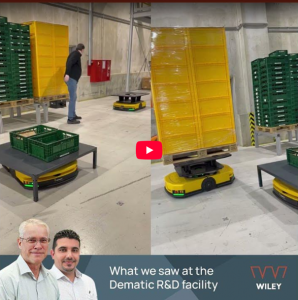
The Australian Government has introduced the carbon tax repeal bills into Parliament in order to abolish the carbon tax from 1 July 2014 with the stated aim to reduce retail electricity and gas prices.
The question is: are there any potential opportunities in the new legislation for our industry?
The ‘Emissions Reduction Fund’ (ERF) is the centerpiece of the Government’s Direct Action Plan’. The ERF is intended to provide incentives for abatement activities across the Australian economy. It is said to provide $300m, $500m and $750m over the forward estimates period.
The Government released a Green Paper on 20 December last year outlining design options for the ERF. Public consultation on the Green Paper (to which the Australian Food and Grocery Council, among other interested parties, contributed a brief submission) is now closed.
There was a public information session held in Canberra at the beginning of February, which was attended by about 100 industry and community representatives and a White Paper is due for release next month (April 2014).
In addition, the Government has established an ‘Expert Reference Group’ to provide high level advice on the design of the ERF. This group consists of ‘leading industry and academic experts’.
The Government has also established the following Technical Working Groups for the key industry sectors.
- Coal Fugitive Emissions
- Building Energy Efficiency
- Industrial Energy Efficiency
- Transport
- Waste
Of these, the Industrial Energy Efficiency group and the Waste group are of particular importance for our industry (with potentially significant opportunities).
The first of those groups has started to examine a method for heating processes and improvements in refrigeration systems, as well as prioritising the development of a generic engineering approach for energy efficiency improvements in industrial processes. The second has started to consider improvements in the existing Carbon Farming Initiative (CFI). This includes consolidation of the four CFI methodologies for Alternative Waste Treatment into a single method, expanding the methodology to include anaerobic digestion as an eligible technology and power generation.
We have signed up to receive Government updates on the ERF. We will keep you informed and will comment on the contents of the White Paper once it is published. So, for now, it is a question of ‘watch this space’.
If you would like to join their mailing list, visit http://www.environment.gov.au/apps/web-forms/subscribe/erf-update.html and subscribe.
APPENDIX
The bills submitted by the Government are listed below:
- Clean Energy Legislation (Carbon Tax Repeal) Bill 2013
- Clean Energy (Income Tax Rates and Other Amendments) Bill 2013
- Clean Energy Finance Corporation (Abolition) Bill 2013
- Climate Change Authority (Abolition) Bill 2013
- Customs Tariff Amendment (Carbon Tax Repeal) Bill 2013
- Excise Tariff Amendment (Carbon Tax Repeal) Bill 2013
- Ozone Protection and Synthetic Greenhouse Gas (Import Levy) (Transitional Provisions) Bill 2013
- Ozone Protection and Synthetic Greenhouse Gas (Import Levy) Amendment (Carbon Tax Repeal) Bill 2013
- Ozone Protection and Synthetic Greenhouse Gas (Manufacture Levy) Amendment (Carbon Tax Repeal) Bill 2013
- True-up Shortfall Levy (Excise) (Carbon Tax Repeal) Bill 2013
- True-up Shortfall Levy (General) (Carbon Tax Repeal) Bill 2013
Membership of the Emissions Reduction Fund Expert Reference Group:
- Mr Danny Price, Managing Director – Frontier Economics (Chair)
- Mr David Green OBE, Chief Executive – Clean Energy Council (Co-Chair)
- Mr Alex Gosman, Chief Executive – Australian Industry Greenhouse Network
- Mr Neil Hereford, Head of Carbon Solutions – Commonwealth Bank of Australia
- Mr Brendan Pearson, Chief Executive – Minerals Council of Australia
- Mr Matt Linnegar, Chief Executive Officer – National Farmers Federation
- A/Prof Andrew Macintosh, Associate Director Centre for Climate Law and Policy – Australian National University
- Ms Romilly Madew, Chief Executive – Green Building Council of Australia
- Mr Cameron O’Reilly, Chief Executive – Energy Retailers Association Australia
- Mr Adrian Palmer, Director – Exigency Management
- Mr Matthew Warren, Chief Executive – Energy Supply Association of Australia
- Ms Jennifer Westacott, Chief Executive – Business Council of Australia
- Mr Innes Willox, Chief Executive – Australian Industry Group
- Dr Alex Wonhas, Director Energy Transformation – Commonwealth Scientific and Industrial Research Organisation
- Australian Chamber of Commerce and Industry – To be confirmed once new CEO appointed


